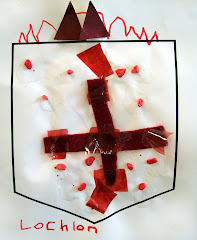Emotional control is for everyone!
We
all lose our cool from time to time but if ‘flying off the handle’ is a common
response to stress or uncertainty, it can be a signal that something needs to
change. Children alert us to the problem when we catch ourselves reprimanding
them for behaviour that we see in ourselves.
If we
don’t want them throwing tantrums, we need to make sure we aren’t!
Being a parent has never been easy!
It is
so important that we show our children how we want them to behave.
No
one has ever said it’s easy, but it is important. If we want them to be
curious, we need to show curiosity and zest for learning. If we want them to
control their emotions, we need to manage ours.
Counting to three can make all the difference!
According
to Ron Siegel, Assistant Clinical Professor of Psychology at Harvard
University, just counting to three is enough. Practice catching your
overreactions before they happen, by giving yourself a simple buffer - 1,2,3.
The next time you feel yourself ready to blow, try it under your
breath....”One, two, three”. You may be pleasantly surprised at
how much better you’ll feel and you’ll be modelling emotional regulation for
your children too.
“One, two, three”. Next - ask yourself, “Does this really matter?”, “Is this worth losing my cool over?”
or maybe you’ll even have time to
remember to say, “When you do or say that it makes me feel angry, sad, ______.”
Let’s
model emotional intelligence. It’s a simple as 1, 2, 3!
Emma McKenzie
Teacher - Edgerley Room
Wellbeing Facilitator
